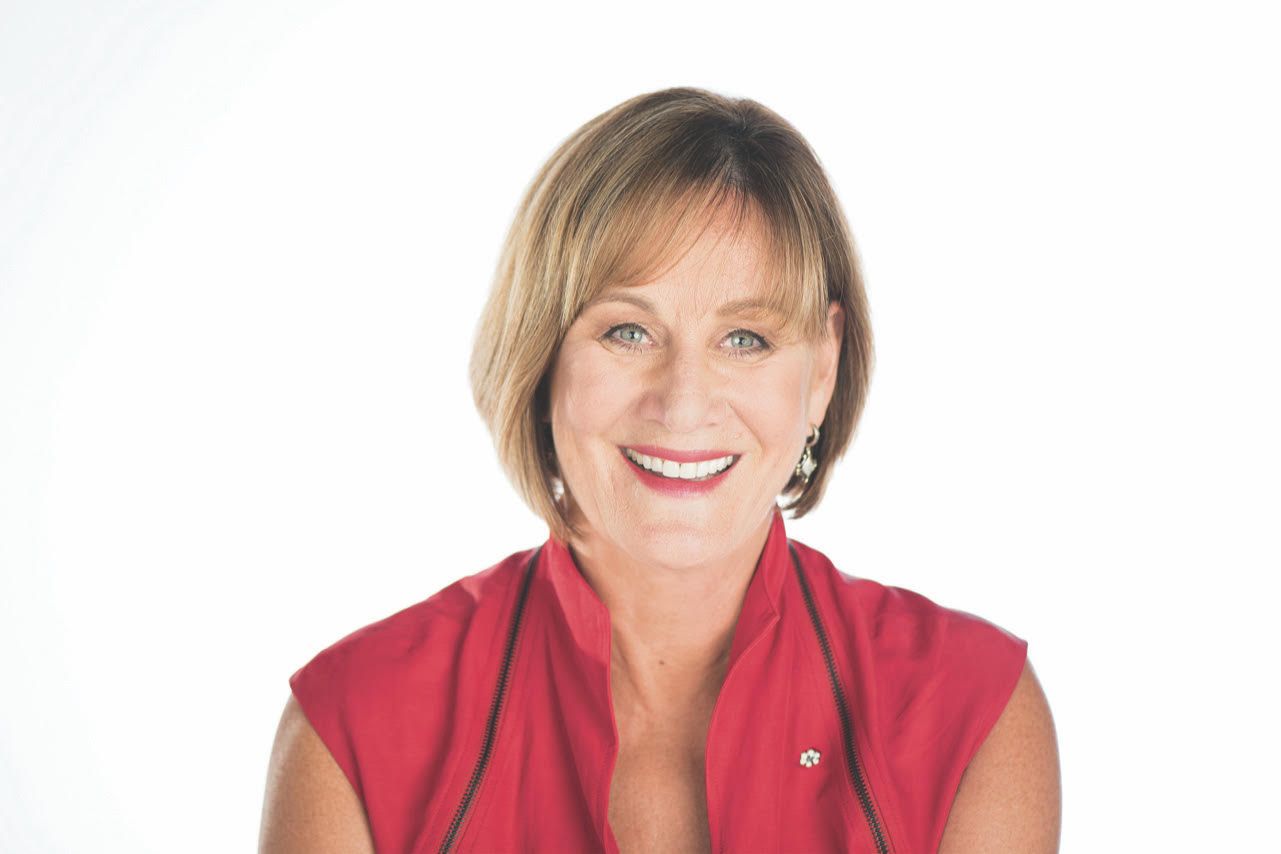Women in Music as Parents and Mothers

By Samantha Matusoff
**While this article uses the term “women” and “mother” to identify the birth partner, we recognize that not all folks identify as such in their parental journey, be it biological, surrogate, adoption, village or otherwise.
It is proven statistically that COVID-19 disproportionately impacted working women in Canada as primary caregivers. In the first two months of the pandemic, 1.5 million Canadian women lost or left their jobs in 2020, reports RBC Economics*. Many had to pivot career paths to adapt to being at home with children. Some reduced hours. Some quit or were laid off. But many changed careers practically to meet their family priorities. Women aged 20 to 24, and those aged 35 to 39, exited the workforce at higher rates, with 35- 39-year-old mothers making up the majority.^* This exodus was dubbed a “Shecession,” and highlighted the existing inequalities in the workplace and society, from the pay gap to the lack of women in executive roles in all industries.^^
“Canadian women [in music] were disproportionately affected because we were the first [to shut down] and last industry [to reopen],” says Executive Director of Women in Music Canada, Robyn Stewart, mother of two. The impact was felt immediately and three years later, the industry still has not recovered. Women's participation in the workforce remains at a 20-year low, according to a 2022 report from RBC.^ “Our industry always has had challenges historically when it comes to equality and work-life balance,” says Erin Benjamin, President & CEO of the Canadian Music Live Association, and mother of two teenagers. “We lost a lot of specialised talent to film and TV because they’re better paid and often better working conditions,” says Benjamin.
“A lot of women had to change careers to pay the bills and aren’t moving back,” agrees Stewart. “There’s a lot of trauma around COVID,” she says, adding that the fear of industry economic instability will prevent the return of skilled workers.
Countless Canadian studies and economic reports indicate that the solution is for companies to offer more flexibility and affordable childcare. ”We’re all talking about it way more and making progress,” says Benjamin. “Is it perfect? Absolutely not.”
Stewart remains optimistic about an equitable future, “We can win back some of those wonderful women in music that stepped out because of parenting responsibilities [during COVID].”

When a child comes along, everything changes. No matter how many books you read, or parents you talk to, each situation is unique and with its own challenges. Enter: working in music as a parent, especially as a mother. “I’ve had a lot of women and men ask, “What does it look like after a baby? How long should I take maternity leave or pause on touring?” says Robyn Stewart, Executive Director of Women in Music Canada and mother of two. “I always say, don’t make that decision until the baby is here,” says Stewart, who also supports new mothers as a doula. “I’ve seen women [and parents] who said they’d be back after two months never go back to work, and others come back early,” says Julie Adam, Executive Vice President & General Manager of Universal Music Canada, and mother of two.
Becoming a parent, “Isn’t everyone’s path,” says Stewart. Canadian women now pursue planned motherhood at later ages. According to a Statistics Canada report from 2021, the average age of birth for a first-time mother in Canada is 31.2 years.** In Ontario, where the bulk of the music industry is concentrated, the average age is 32 years.** Considering most folks begin their careers in their early 20s, that’s almost a decade to become an expert and climb the ladder to steady employment with labels, agencies, A&R, management, media, and other related roles. “It’s a big life decision but so is your career,” says Stewart.
“I can’t say the word passionate enough, "says Benjamin. Women get into it for the same reason: they love music. “It’s such exciting work,” says Benjamin. That said, a career in the Canadian music industry is anything but a 9-5 job. You’re up at all hours, out late at events, and expected to be on-call constantly for clients travelling internationally, monitoring midnight new music releases, etc. Work relationships and friendships bleed into your personal life. Not to mention that the energy and dedication are often not reflected in pay early on in your career. “My first job they paid me very little [and] had no benefits,” says Benjamin, adding that she didn’t have children at that point. The social impact drives their passion. “You’re helping a LIFE, [it’s] beyond just a job,” says Andrea Guernsey, Head of Streaming and Promotions at Wax Records (clients include Virginia to Vegas and Bulow).
That all-encompassing career often delays parenthood. “I put off having kids for sure,” says Guernsey. Maternity leave and parental rights are protected by laws in Canada, including the Canada Labour Code (CMC), Canadian Charter of Rights and Freedoms, and Employee Standards Act 2000 (ESA)^^^.
“The biggest fear was the work aspect,” says Guernsey, who hid that she was pregnant while on a popular artist’s European tour. Despite being an established professional, she was concerned that she would be put into a separate category and not be taken seriously. “It was scary. [I didn’t want them to go,] “She’s a mom, she can’t be on the pulse,” says Guernsey.
Instead, she had the opposite experience and was very well-accommodated by her work and now has two mom co-workers. “I felt pretty lucky,” she says. ”You work so hard to create a position for yourself that feels right…It’s so mind blowing that you disappear.” Employment Insurance Canada offers salaried full-time workers either Standard Parental Benefits at 12 months at 55% of their salary or Extended Parental Benefits at 18 months at 33% of their salary (up to a maximum- consult the government EI website). Guernsey took three months of maternity leave for her first child, followed by 12 months for her second child. She admits that she wasn’t “completely unplugged,” and joined the occasional meeting or showcase.

In a household with two music industry parents, her partner, A&R at a major label, took paternity leave to support their second child who was born during the pandemic. “He said it was really eye-opening,” says Guernsey of the daily, and exhausting, infant care. This does not extend to just industry. “A lot of dads who are musicians take on parenting responsibilities because their job has more flexibility,” says Stewart. Interestingly enough, Canadian parents are not required to take maternity or paternity leave, so ultimately it’s up to them. [Self-employed folks are encouraged to look into their rights, as they vary greatly from salaried positions.]
Also, consider how quickly the industry changes in a 12-18 month work leave. For example, TikTok was not a main tool for new music discovery in 2019. “I felt I was so behind and I had to do catch-up… but I wouldn’t change it for the world,” says Guernsey about the quality time she experienced with her children.
Many other interviewees expressed the dangers of assumptions about new parents and job competency. “You can’t control what happens once you’re gone,” says Stewart. “I love that we can make a decision for 3 months and change our mind and be supported,” says Stewart, referencing the rights of parents covered in the CMC and ESA. She adds that maternity replacement hires don’t need to “reinvent the wheel.” Stewart says that she was once in a board meeting where a woman declared that she was pregnant and a male board member immediately said that he would take her role… but she hadn’t resigned. It’s those assumptions that parents cannot complete their work that hurt gender equality progress. “No one works harder than a mom,” says Guernsey.
The music industry, “Eats for people for lunch,” says Benjamin. “You need to know how it works,” says Benjamin. To protect your position while you’re on leave there are many steps you can take. Benjamin suggests having “open conversations” about your leave and if there are no policies in place, especially if you are with a small company, to write one together. Stewart recommends becoming part of the hiring process for your temporary replacement.
According to the CMC and ESA, you have the legally guaranteed rights to return to the same or comparable position at the same rate of pay and level of responsibilities. Any variation on this could be considered constructive dismissal and may be worth contacting an employment lawyer to determine if you have been discriminated against.
With 40 years in male-dominated industries, music and media executive Denise Donlon agrees that it is possible for women in music to have careers after children. “It’s sustainable if you have the right culture and environment, [and] support team around you.”
Vice President of Universal Music Canada Julie Adam agrees wholeheartedly,” Yes! 100%! And, not only in music, in whatever they choose,” she says. There is some soul-searching that must take place first though by being honest about what your true values are and how you can prioritise accordingly, “You can change your priorities and focus whenever you want, and you will. Parenting changes drastically over time, from parenting a two-month-old to a two-year-old to a 20-year-old,” she says. “Kids don’t necessarily sleep on your same schedule,” says Donlon.

So don’t expect it to be a seamless work transition from pregnancy to parenthood. “I obviously sucked on work-life balance- I went into labour on air,” says Donlon. Just one week and 15 minutes before she was to host Intimate and Interactive with the Cowboy Junkies, her water broke on the MuchMusic set. “Nobody believed me!” Amazingly, and a testament to the strength of women, she powered through and left for the hospital immediately after the broadcast where her son was born.
Everything changes once you become a parent and it’s near impossible to predict in advance. “My family priorities changed. I knew how hard it was to juggle everything,” says Donlon. At just 8 months postpartum, she was promoted to Director of Programming at MuchMusic. Now retired, she went on to balance parenting with massively influential positions as VP at MuchMusic/CityTV, VP at Sony Music VP, and later President of CBC. She suggests guarding your schedule fiercely to ensure your priorities are met.
“Work-life balance is an extreme sport,” says Donlon. “Like anyone in any professional sport, you need a team around you.” Going from club to club along Queen West as host of The NewMusic on Much and working at all hours was no longer possible so she relied on family and her touring musician husband, Murray McLaughlin, to help. Donlon says that while it can be achieved over time, continued conversations about how the parenting duties will be shared are critical to success because if the parents are happy, so will the children. Guernsey suggests negotiating needs with each parent, especially if both parents work in music. “It’s really important that I go out in the evenings to do things [for work]]. If a call comes in, he has to drop everything and take it,” she says. There is a respected understanding.
All interviewees agree that establishing boundaries with your employers and clear communication is key, no matter what level of your career. “After I had kids, I established that I would leave at 4:30 p.m. every day to get home for dinner,” says Adam. “[My boss] said, “Tell people so they know what you’re doing.” It got to the point that if I was in a meeting at 4:35, they’d shut the meeting down so I could get home.” Adam says that while it can be difficult to “take that leap,” if you tell people what you’re doing, they will help you. She adds lastly that you should never be afraid to ask for help either when it comes to parenting duties. This includes overall infrastructure like offering daycare, flexible hours, hybrid or remote work.
“You lose talent,” says Donlon if an employer cannot accommodate working parents. It is also, “OK to look outside of music if that meets your family priorities,” says Stewart, referencing the pandemic’s impact on the shift in careers for working parents. “A lot of people see that as a failure but once you’re forced to step outside and still do music without having to stress over the pay cheque, you may even reignite your passion,” says Stewart.
“Parenting changes drastically over time, from parenting a two-month-old to a two-year-old to a 20-year-old,” says Adam. “You can change your priorities and focus whenever you want, and you will.”
And if you don’t find it in your current employment, those communities exist in person and online like she.said.so parents’ forum and What’s App Women in Music parenting group. Recommended platforms for equitable job opportunities include WorkinCulture, career boards on WorkInCulture and FYI News, as well as music association newsletters.
Benjamin praises companies like Live Nation and Universal Music Canada for accommodating parents well. “There are really successful women [in music] who are parents and do that seamlessly. It’s definitely doable,” says Benjamin. Live Nation supports Bring-Your-Kid-to-Work Day. CBC had a children’s daycare in Toronto when Donlon ran it. Another example of accommodation is for an employee to start work later at 10 a.m. instead of 9 a.m. so that they can drop off their child at school or daycare. Similar initiatives will, “Attract better employees because providing what they need,” says Stewart. Donlon says that the lessons learned from hybrid and remote work conditions from COVID can continue to be applied to allow for that level of flexibility.
“Building community around each other and advocating for change is imperative to reaching gender parity and overall progress,” says Donlon who is also an acclaimed public speaker on Leadership, Equity, Diversity and Inclusion. “There’s mountains of research on how women and diversity increase the profitability of companies.” She insists that the most impactful way to retain top talent from working parents is to provide flexibility and from countless support affordable childcare. “I remember leaving to pick up my son and my boss at the time said, “You need a wife.” Those [sexist] standards still exist,” says Donlon. She insists that in order to reach gender parity, there needs to be a shift in understanding. “Bring more empathy to the table… the more companies understand that the better off they’ll be.” “We have to make men more than allies,” says Donlon. “They have co-conspiracy.”
Regardless of gender identity, it’s important for children to see parents enjoying and excelling at their work as strong role models. “You still have a lot of years of work in you,” says Guernsey, who is excited to give her children memorable experiences through her career. Passion for music motivates all the interviewees, but also the desire for their children to be proud of them as working professionals. “I figured that if I could raise my son, cherish my relationships, serve the company well AND make a positive contribution, that would be a success,” says Donlon.
“They know I will drop everything for them, and they also know I have a career that’s important to me,” says Adam. “They love that.”
Success looks different to each of them but ultimately their motivations are the same. “Being a mom is the best thing I’ve ever done and matters more to me than anything else,” says Benjamin. “Did I get it right all the time? Absolutely not,” she says.
“Some days, you’ll feel like you are nailing it and other days you’ll feel like a disaster. And that’s okay. There is no perfect solution, so be kind to yourself and cut yourself a break,” says Adam.
So the next time you see a parent duck out of a meeting early or take a personal call, consider how many other lives they are managing in addition to the amazing professional skills they apply to their everyday work lives.
BIBLIOGRAPHY/SOURCES:
*Hunt, Shauna & Bruno, Jessica, February 12, 2021, Toronto City News, “Canadian Women Continue to Exit the Labour Force,”
[https://toronto.citynews.ca/2021/02/12/working-women-set-back-decades-by-covid-19s-impact]/
^Desjardins, Dawn & Freestone, Carrie. November 19, 2020. RBC Economics. “Canadian Women Continue to Exit the Labour Force.”
[https://thoughtleadership.rbc.com/canadian-women-continue-to-exit-the-labour-force/ ]
^^Thoreau, Meghan. January 20, 2022. Ohio State University Education Online. “The She-cession: How the Pandemic Forced Women from the Workplace and How Employers Can Respond.” [https://ohioline.osu.edu/factsheet/cdfs-4110 ]
^^^ “Maternity Leave Canada – Know Your Rights” Monkhouse Law. October 3, 20200. https://www.monkhouselaw.com/maternity-leave-canada/
**”Mean age of mother at time of delivery (live births),” Statistics Canada. September 28, 2022. [https://www150.statcan.gc.ca/t1/tbl1/en/tv.action?pid=1310041701]
***Donlon, Denise. Fearless as Possible: Under the Circumstances. Toronto. 2016. House of Anansi Press Inc. Print. Pages: 205-12, 312, 316-319, 345-347.
****”Seven charts that show COVID-19’s impact on women’s employment.” McKinsey & Company. March 8, 2021. [https://www.mckinsey.com/featured-insights/diversity-and-inclusion/seven-charts-that-show-covid-19s-impact-on-womens-employment]
